Rec Sports
Three Candidates Seek to Represent Voiceless Southeast Michigan District
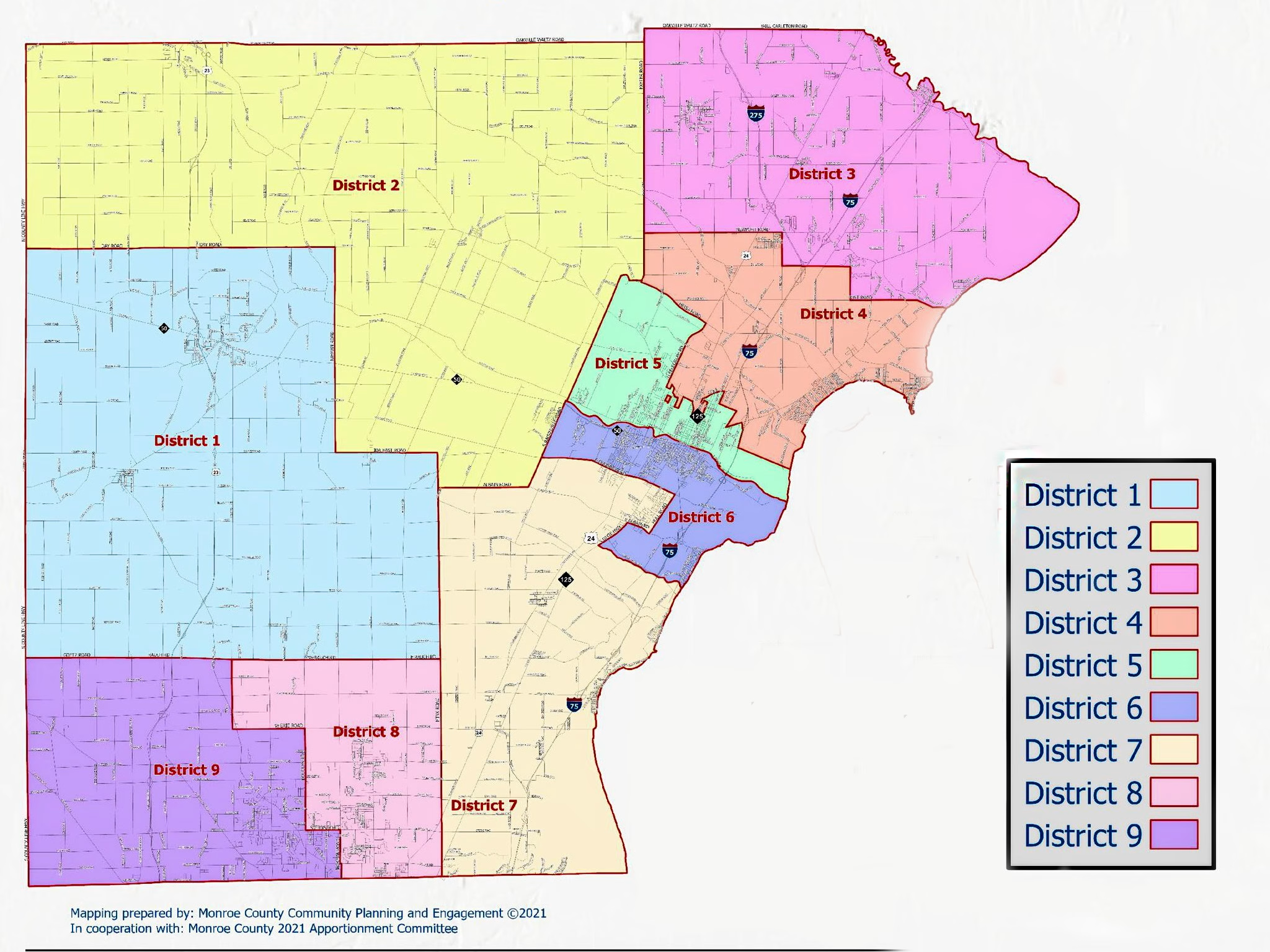
After months without representation following former Monroe County Commissioner Mark Brant’s federal indictment, Monroe County Commission, District 2 has three candidates vying for the seat at the upcoming Primary.
By the final election in November, the residents of District 2—which includes the Monroe County side of Milan, the Village of Maybee, plus London, Exeter, Milan and Raisinville Townships—will have been without a commissioner to voice their concerns at meetings for more than a year.
Brant, who had been the chair of the county commission, was sentenced to 18-months in prison for maintaining a drug-involved premise. Despite his conviction, he still won the election in November 2024, the same month he headed to prison. Navigating a situation that Commissioner David Vensel, the current chair, said had no precedent, the county commission has been relying heavily on the advice of their lawyers.
County attorney Phil Goldsmith, of Lennard, Graham and Goldsmith, said they interpreted the law as the seat was automatically vacated since Brant was incarcerated for a felony and not a qualified elector when he was to assume his duties starting Jan. 1, 2025.
Goldsmith said due to the nature of the situation once the upcoming election is certified the winner will immediately take the oath of office and their seat, rather than waiting for Jan. 1, 2026, to begin their term.
Current candidates include: Dale Biniecki (Republican) of Monroe; Dwayne Dobbs (Republican) of Monroe; and Danielle Hoover (Democrat) of Milan.
To help District 2 voters choose who will be their voice, as part of our 2025 election coverage, The Sun Times News invited all County Commission, District 2 candidates to respond to the same set of questions about key issues. All candidates responded and answers are provided below.
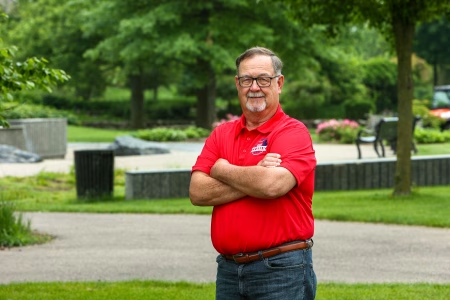

1. Why did you decide to run for County Commission, District #2?
Dale Biniecki: I decided to run for the county commission when the need arose for the citizens of District 2 to have representation. With the removal of the current commissioner, I wanted to make sure the needs and issues of the district were addressed.
Dwayne Dobbs: I decided to run because our community deserves someone who shows up and speaks out. When it became clear that District 2 wouldn’t be represented, I started attending every commissioner meeting to ask the tough questions. I’m not a politician. I’m a regular guy who cares deeply about this county and wants to make sure the people here are heard.
Danielle Hoover: To borrow from the NASW MI Code of ethics, primarily to bring service to others. Also, to bring the values of community, and equality to all people living in this District and beyond.
2. How long have you lived in Monroe County? What are your qualifications for this position, including previous involvement in politics and community service? What boards, commissions, etc. have you served on?
Dale Biniecki: I am a 70-year-old lifelong resident of Monroe County and District 2. I am a retired Truck Owner-Operator and a former farmer who now leases my farm land to local farmers. I have been a member of the Monroe County Republican Party Executive Committee and a Precinct Delegate for 15 years. I have also been a member of the Lenawee, Washtenaw and Wayne Counties Executive Committees since 2022. I ran for a seat in the Michigan House of Representatives District 31 in 2022 and lost by 4 percent and in 2024 losing by 1.2 percent.
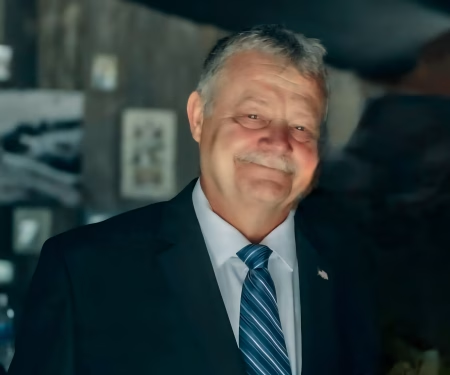

Dwayne Dobbs: I grew up in District 2 and now live next door to the house I was raised in. I served in the U.S. Army and retired after 30 years with the Monroe County Sheriff’s Department. I’ve never run for office before, but I’ve always been involved: coaching youth sports, organizing fundraisers for local kids, and stepping up whenever the community needed a hand.
Danielle Hoover: 12 yrs. Both kids go to Milan Area Schools K-present. Licensed social worker for 14+ yrs. Gold Star Family Member. AFSCME member/steward & delegate to Huron Valley Area Labor Federation. Also recording secretary there. MI Board of Social Work member since 2020, vice chair since 2022. Medical Reserve Corp. member in Washtenaw & Monroe Counties. St. Andrew’s Episcopal Church, breakfast program, 2020 to present. NASW MI member; Monroe Co. NAACP member. When not working or with my family, I’m likely volunteering.
3. What are the most important issues facing Monroe County Commission District #2, and how would you address them? What are your top priorities, if elected?
Dale Biniecki: Local control of zoning by the four townships in District 2 I feel is the most important issue. With at least 78 percent of the residents opposing the takeover of wind and solar zoning by the state, our state representative (Reggie Miller) was the deciding vote to allow the state to take over our zoning. The residents of District 2 felt betrayed. I want to be their voice at the county level to minimize the attacks on their rural lifestyles.
Dwayne Dobbs: Right now, accountability and trust in leadership are top of mind for a lot of people, and they should be. We need representatives who are present, honest, and working for the people. I’ll also focus on supporting public safety, maintaining our infrastructure, and being smart about growth. I’ll be at every meeting and keep communication open with the folks who live here.
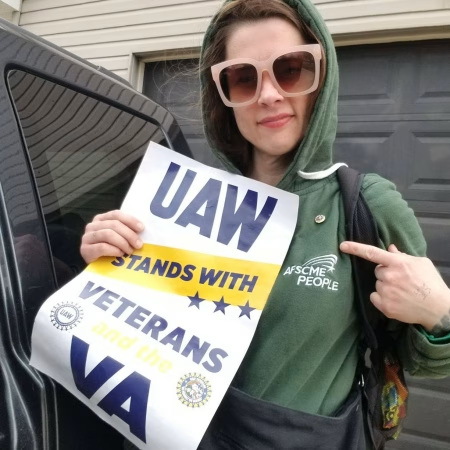

Danielle Hoover: Right now, the most important issue facing Monroe Co. District 2 is having an appropriately qualified person elected to that seat. That person is me. If elected, I would love to work on areas such as mental health, unions, and veterans. My brother Spc. Hoover was kia in Iraq in 2007. That was what made me a Gold Star Family Member. Veterans have a special place in my heart. All that love has to go somewhere. District 2 is a good place to practice that.
4. What is your background and approach to budgeting and finance?
Dale Biniecki: As a small business owner for over 47 years, I know the importance of budgeting. Economies ebb and flow and provisions must be made to minimize impacts on government finances. We must take into consideration our aging population. These citizens are living on a fixed income and we must keep that in mind when generating budgets.
Dwayne Dobbs: Throughout my career in law enforcement and community work, I’ve always been careful about how resources are used. Whether it was making sure a fundraiser stretched every dollar or helping manage daily operations at the sheriff’s department, I’ve learned the value of smart, responsible spending. I believe taxpayer money should be treated with respect and used where it does the most good and keeping spending focused on what really matters to families, without waste or politics getting in the way. Budgeting should always be transparent and done with the community’s needs in mind.
Danielle Hoover: As a parent and social worker, I understand budgeting in a unique way. As someone with both of those roles, I am cognizant of people across socioeconomic spectrums. Additionally, I would help the most amount of people with minimal risk to others while being responsible with taxpayers’ dollars.
5. Monroe County includes a large number of communities. How will you meet the needs of the most residents possible when covering such a large area?
Dale Biniecki: Monroe County includes many communities. District 2 includes Milan, Raisinville, Exeter and London Twps. It is mostly rural with the Village of Maybee and the south side of the City of Milan. Some of these areas have some of the poorest resident in the county. It will be important to address their needs and requirements.
Dwayne Dobbs: I’ve always believed that showing up matters. Whether it’s a township meeting, a ballgame, or just talking with folks at the hardware store, I’ll be there and I’ll listen. Each corner of District 2 is unique, and I’ll do the work to understand what each area needs and how I can help. You’ll always know where to find me.
Danielle Hoover: As a social worker with over 14 years of experience, I am adept at communicating with and engaging with many different groups of people. I have to do that work professionally and would continue those behaviors as an elected official. For example, I’d really enjoy meeting with constituents face-to-face when they have concerns.
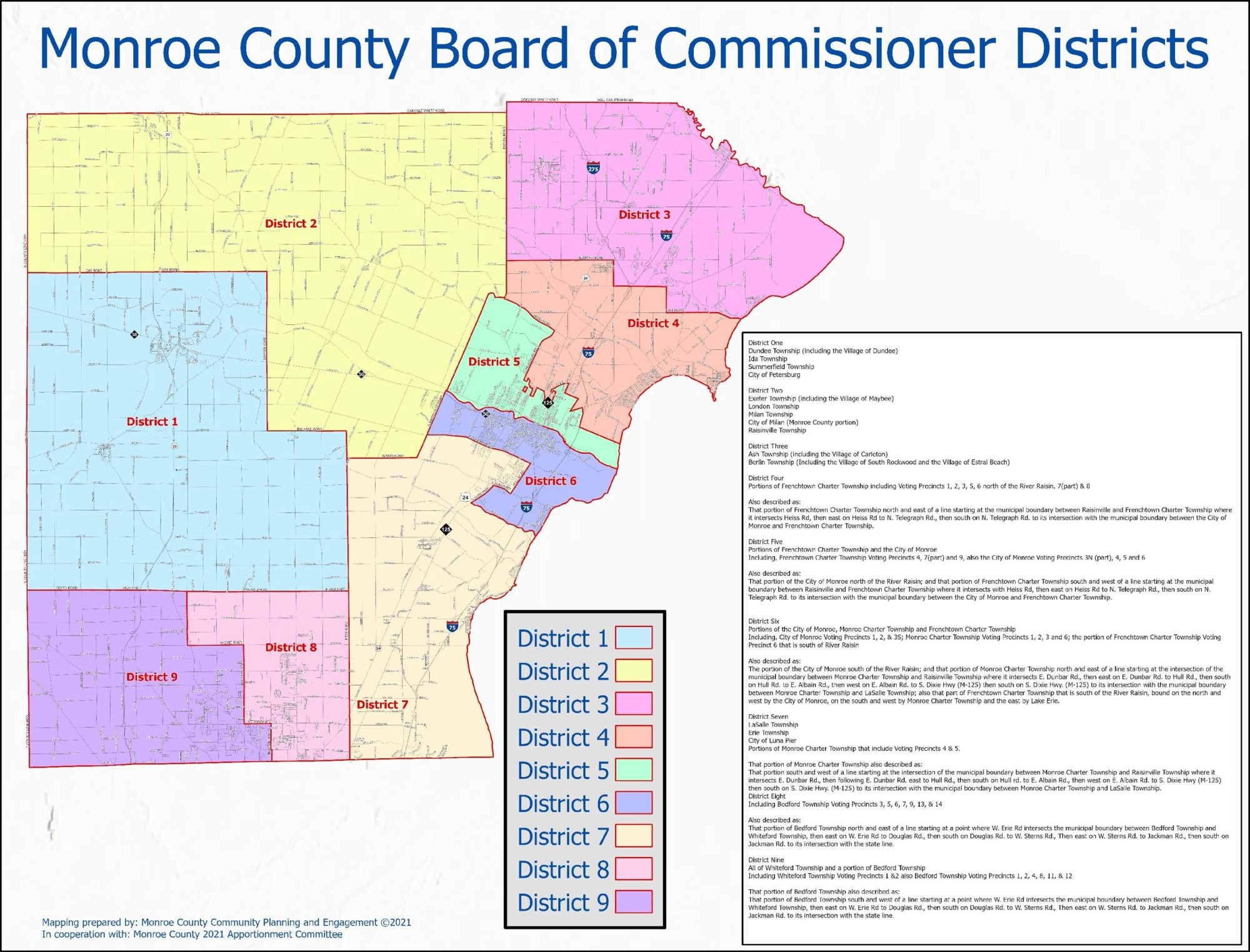

Find more election information at the following links:
Election Overview
Milan Mayor Race
Milan Library Board Race
WISD millage
Candidates’ answers to questions posed by the League of Women’s Voters have been posted at: https://www.vote411.org/ballot.
Rec Sports
When private equity invests in youth sports facilities : NPR

NPR’s Juana Summers speaks with Luke Goldstein of The Lever, who wrote about the rise of private equity control of youth hockey facilities.
JUANA SUMMERS, HOST:
If you have kids and they play sports, maybe you’ve been tempted to reach for that video camera in your pocket, which also makes phone calls, and maybe grab a little footage. About a year ago, a U.S. senator was warned about that.
(SOUNDBITE OF ARCHIVED RECORDING)
CHRIS MURPHY: I was just told this last weekend that if I livestream my child’s hockey game, my kid’s team will be penalized and lose a place in the standings. Why is that?
SUMMERS: According to Connecticut Senator Chris Murphy, a Democrat, this is because a private equity company had bought up a bunch of ice rinks, installed video cameras, and all of them charged subscription fees to access their footage and prohibited folks from filming their kids playing hockey. A new report from The Lever examines how restrictive streaming practices have become widespread in youth hockey and increasingly in many youth sports held at corporate-owned facilities. Luke Goldstein’s article is headlined, “Wall Street Is Paywalling Your Kids’ Sports,” and Luke Goldstein is here in the studio with me now. Hi.
LUKE GOLDSTEIN: Hey. Thanks for having me.
SUMMERS: Thanks for being here. So Luke, I just want to start by asking you this – what Senator Chris Murphy had to say. Is his description of this phenomenon accurate? How do these recording and streaming services work?
GOLDSTEIN: Yeah. So what I kind of found from my reporting is that this is not just happening in youth hockey. This is really across the board for youth sports in general, which has become a booming industry. It generates about $40 billion…
SUMMERS: Yeah.
GOLDSTEIN: …In revenue each year, according to an Aspen Institute study from earlier this year. And, you know, those kind of eye-popping numbers have attracted the interest of Wall Street firms and, in particular, private equity. And, you know, they’ve been buying up and, you know, rolling up a lot of these youth sports, you know, facilities, the leagues, tournaments. And, you know, that’s leading to some pretty significant changes across the board. You know, one of the most dramatic changes is what’s happened with the streaming services now. You’re not allowed, at numerous, you know, rinks and other kinds of sports facilities, to record your own kids’…
SUMMERS: OK.
GOLDSTEIN: …Games, and you’re offered this package that you can pay. And sometimes that will cost more than the streaming costs for professional sports like ESPN.
SUMMERS: Luke, your article focuses largely on this one company that’s called Black Bear Sports Group. And we reached out to them for comment, and a spokesperson told us, and I’m quoting here, “parents are always welcome to record videos.” They said that the only restrictions were on livestreaming or broadcasting, citing safety and consent concerns. Does that square with what you heard in your reporting?
GOLDSTEIN: So before publishing the story, I had reached out to Black Bear Sports Group. And they had sent me, you know, a series of written responses, and prior to the publication of this article, did not dispute that parents were not allowed to record…
SUMMERS: OK.
GOLDSTEIN: …And livestream and broadcast. After the publication of this article, they’ve put out a statement that the only policy is against live streaming the games, you know, online on social media or other platforms. If you go to thelevernews.com and read the updated version of the story, I’ve actually obtained a contract between Black Bear’s streaming service, Black Bear TV, and one of its affiliated rinks. And you’ll see in the contract terms, in plain language, that it is not just banning the livestreaming of games. It actually has language that prohibits recording devices. And it says…
SUMMERS: Which could mean…
GOLDSTEIN: …Very clear…
SUMMERS: …Like, your cell phone, then, I’m guessing.
GOLDSTEIN: It actually does say your phone as well. It says iPad. It has a long list of all kinds of equipment. But there is a clear stipulation in these contracts that the terms have to be enforced by rink owners.
SUMMERS: In the statement that we got from Black Bear, they also said that their player participation rate of growth – it’s more than double the national average. They point out that they have saved dozens of struggling ice rinks. And they also maintain that they’re not owned by a private equity firm. What do you make of those remarks based on what you’ve learned?
GOLDSTEIN: My understanding is Black Bear Sports Group is a subsidiary of Blackstreet Capital, which is a private equity firm. And I think you can see, also, some parallels, you know, between the practices by both entities. Blackstreet is well-known for buying up small-, medium-sized companies that, you know, are distressed and have difficulties. They, you know, try to kind of make them a little bit leaner and then, you know, sell them off eventually. It’s a very expensive business now to run an ice rink. Many of them have struggled and are on the verge of bankruptcy or closing up. So I think there’s a much kind of longer story to tell of how Black Bear became the self-described largest ice hockey rink owner in the country.
It’s not just Black Bear. This is really a sea change that you’re seeing across youth sports in general. Overall, what you’re seeing here, because the costs of participating in youth sports across the board have gone up so dramatically, it is starting to cater to, frankly, just a wealthier customer base that’s willing to pay top dollar for, you know, a higher-quality streaming, you know, service that’s being offered.
SUMMERS: Luke Goldstein is an investigative journalist with The Lever news. Luke, thanks for your reporting.
GOLDSTEIN: Thanks. Thanks for having me.
Copyright © 2025 NPR. All rights reserved. Visit our website terms of use and permissions pages at www.npr.org for further information.
Accuracy and availability of NPR transcripts may vary. Transcript text may be revised to correct errors or match updates to audio. Audio on npr.org may be edited after its original broadcast or publication. The authoritative record of NPR’s programming is the audio record.
Rec Sports
Republican lawmaker wants to ban name, image and likeness deals in Ohio high schools
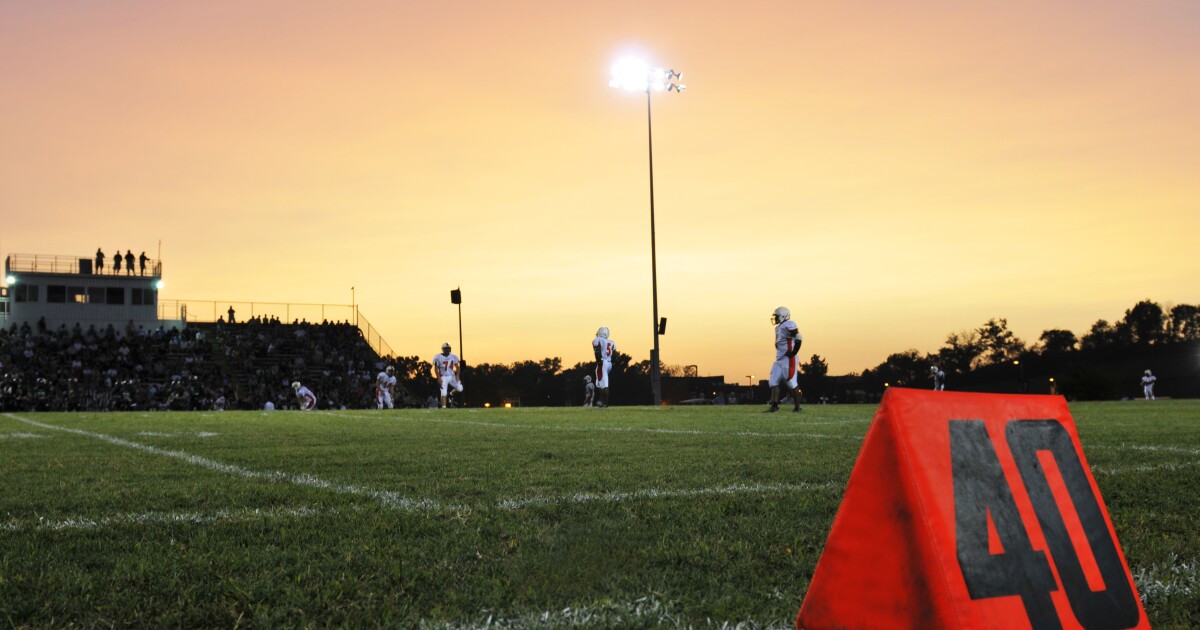
A day after Ohio became the 45th state to allow high school athletes to strike name, image and likeness deals, a Republican state lawmaker said he’s working on a bill to ban that practice.
The members of the Ohio High School Athletic Association voted to allow NIL deals Monday. The bill Rep. Adam Bird (R-New Richmond) is hoping to introduce would prohibit NIL payments to high school athletes.
“When you see the impact that NIL has had on college sports, it’s not been to the benefit of of what college sports should be all about,” Bird said in an interview. “And I think that that we are very much in danger of going down a similar path that is not good for high school students in Ohio by allowing this to go forward.”
Bird hasn’t introduced a bill yet but is talking to other lawmakers about it.
Bird cited a study of college athletes that showed rates of death by suicide doubled over a 20-year period, and is now the second-leading cause of death in that population.
“There’s a lot of pressure for young people today and I think when you start giving them money because of their talent you’re adding to the pressure,” Bird said. “We should not be creating a system that has more pressure on these kids. They should be enjoying and learning and growing in a holistic way because of the experience that we give them in team sports and this is not going down the right path.”
Bird added that public dollars spent on high school sports is intended to help all students: “All of the investment that we make in these facilities and to make these things happen it’s not so that the student can make money. That’s not what it’s about. That’s not why we do sports in Ohio.”
And Bird said it’s his impression most schools don’t want their students to enter into NIL deals. Of the 815 members of the OHSAA, 55% voted for the bylaw change to allow NIL contracts. The rest voted against it or didn’t vote.
“The Ohio High School Athletic Association didn’t really want to do this,” Bird said. “This has all been generated because a temporary restraining order from a single Franklin County judge…has forced OHSAA to go down a path that it didn’t want to go.”
A vote on NIL deals was likely to happen in May, but a lawsuit filed by star wide receiver Jamier Brown of Wayne High School in Dayton pushed it up. Last month Franklin County Judge Jaiza Page had ordered a 45-day pause on the OHSAA ban on NIL deals and set a hearing for December. Brown’s lawyer said the family is dropping the lawsuit.
“I think the majority of our schools are not crazy about the idea of NIL at the high school level,” said Tim Stried with the OHSAA. “Neither is the OHSAA, but as we all know, the courts have spoken many times. We cannot prevent a person from earning money on their name, image and likeness.”
Stired said the OHSAA had expected to be sued by a different athlete earlier this summer, so the organization was ready for the vote. And he said when college athletes were allowed to do NIL deals starting in 2019, that set the stage for what’s happening now.
“A student can get paid for a lot of things that they do well. But athletics was not one of those, and now it is,” Stried said.
Rec Sports
L.A. Phil guts East L.A. branch of Dudamel’s Youth Orchestra program
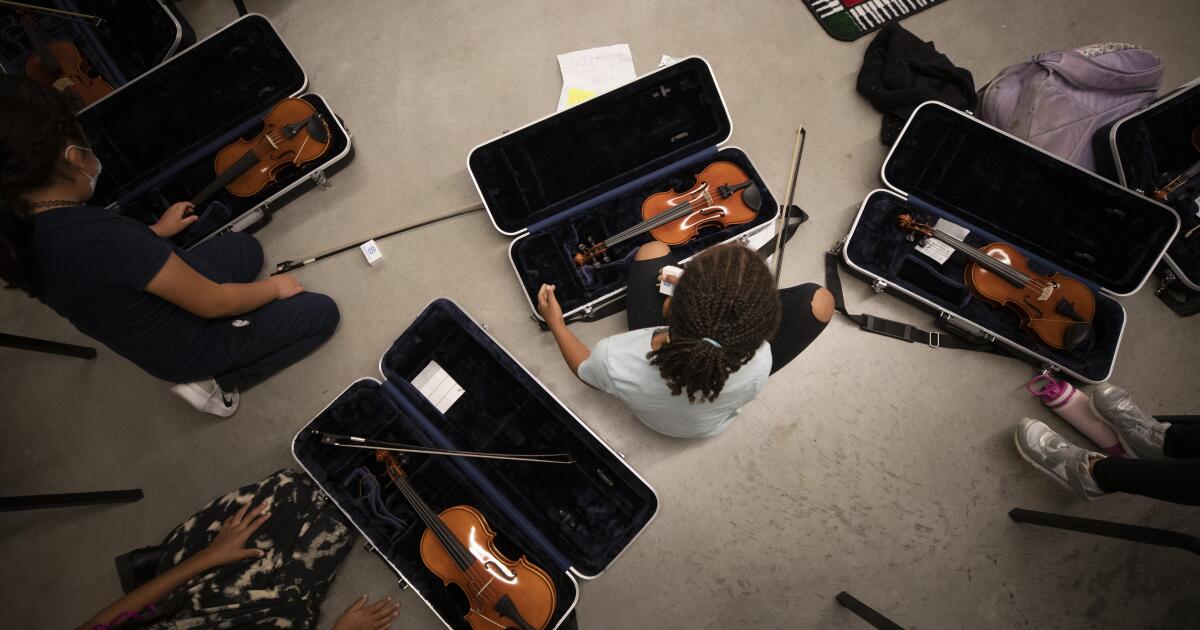
In the face of budget cuts, the Los Angeles Philharmonic is reducing its East Los Angeles youth orchestra program championed by outgoing star conductor Gustavo Dudamel by cutting staff and daily operations.
Last week, in an email to the students’ parents, the nonprofit organization announced that it would need to “significantly modify” the programming at the Esteban E. Torres High School site “due to unanticipated financial and funding challenges for the organization.”
The Youth Orchestra Los Angeles (YOLA) has offered a free musical education to students ages 5 through 18 since 2007. Run by the L.A. Phil, students get access to free instruments and get the firsthand experience of being in a musical ensemble. YOLA currently operates out of Inglewood, East L.A., Rampart District and Westlake/MacArthur Park. The only location subject to cuts has been the Torres site in East L.A., which serves 165 students.
Under these changes, practices for students will be halved, moving from four days of instruction to two days of rehearsal. All the teaching artists at the site were laid off, leaving two conductors to lead what remains of the program. These modifications will only apply to the higher-level students, as programming for the younger pupils (known as the Sprouts and the Explorers) will be gutted, with the option of moving to another YOLA site.
Spearheaded by Dudamel, the program is modeled after El Sistema, the publicly funded program where he first learned music in Venezuela. The conductor, who has been with the L.A. Phil since 2009, will be leaving the orchestra in June 2026.
Jules Levy, one of the 12 laid-off teaching artists, says that with these adjustments, about 80% of the students’ learning will be reduced.

Conductor Gustavo Dudamel rehearses with young musicians from around the country participating in the L.A. Phil’s annual YOLA National Program at Walt Disney Concert Hall in 2023.
(Dania Maxwell / Los Angeles Times)
“There wouldn’t be any music theory, music history and no singing. They’re going to come in and play in an orchestra, and won’t have any coaches to teach them,” said Levy, who has been a YOLA instructor since 2019. “No more studio classes, no private lessons, no master classes, and no sectionals.”
At Torres, Levy worked as a double bass coach and taught students across all age groups. He is also an alumnus of the program’s first iteration, saying it’s “the reason I am a successful musician today, but I also think about how many kids we just took that possibility away from.” When he had to explain the situation to his students, he says he was greeted with a lot of confusion and many teary eyes — as the community undergoes another unprecedented change.
“This is a community where we have students from East L.A. Some of these students have had their parents, their cousins and other family members abducted by ICE recently. This is one of L.A.’s most vulnerable communities,” Levy said.
These revisions were also announced days before the teaching artists voted to unionize, under the American Federation of Musicians of the United States and Canada.
In a statement to The Times, the L.A. Phil said they are “doing everything possible to support impacted students and staff, including placement at other YOLA sites and providing transportation when possible.”
“Our mission has always been to bring people together through the power of music and live performance, and we remain steadfast in our dedication to the families, musicians and employees who create our YOLA community,” wrote an L.A. Phil spokesperson.

YOLA institute students perform on stage during a Gracias Gustavo Community Block Party at the Judith and Thomas L. Beckmen YOLA Center in October.
(Etienne Laurent/For The Times)
When Karla Juarez, a parent of two students at YOLA Torres, found out about these cuts, her first instinct was to rally people together. She created an Instagram page, under the name @saveyolatorres and has been sharing messages from the community, trying to revive the program.
“We cannot give up. We, as parents, will stay committed and united. We’re going to do whatever it takes to continue the program,” said Juarez. “Our main focus is to fight for our kids and their futures.”
She has two children in the program, her 8-year-old son who was a Sprouts percussionist, and her 13-year-old daughter, Romina Sanchez, a cellist in the symphony orchestra. Juarez says her daughter has always had an interest in music, but YOLA helped bring out a new sense of confidence within her.
“I was honestly so devastated [about the cuts] because I love music. YOLA is like our home away from home,” said Sanchez. “I’m also very devastated, because I have to turn in my instrument. I’ve been with my cello for three years now.”
The 13-year-old musician says she is coming up with a plan to save up for a new cello or to figure out where she can rent one. Juarez works two jobs in order to support her family and she says they still “can’t afford private music lessons.” To her, the fight is about holding onto this kind of access for her children.
“We understand it’s a free program. We are grateful for that. But they cannot use our kids if they don’t follow [through with] their mission,” said Juarez. “Unfortunately, they are tarnishing Gustavo Dudamel’s legacy. They fed the [kids] a dream of learning to grow in music, and now they’re snatching that dream away.”
The YOLA Torres site will continue to operate as usual until Dec. 12, when the cuts will go into effect.
Rec Sports
Tucson Youth Cycling Partnership

TUCSON, Ariz. (Nov. 25, 2025) — Banner – University Medicine Tucson organized a 10-rider team for this year’s El Tour de Tucson on Saturday, Nov. 22, and partnered with El Grupo Youth Cycling to support youth sports.
As part of the partnership, Banner supplied El Grupo’s riders with functional cycling jerseys, which replaced the T-shirts youth athletes had previously worn on race day. The jerseys were modeled after the Banner University Medicine Tucson team design and inspired by the spotted pattern of the Gila monster.
Riders also received special treatment and shared a dedicated space with the Banner riders before and after the event to warm up, rest and enjoy post-ride pizza and refreshments.
“Our riders were excited to represent Banner – University Medicine with the custom jerseys, and they loved spending time at the Banner tent before and after the race,” said Jeff Cheever, programs and operations manager for El Grupo.
The El Grupo team included the 70 youth and coach riders who trained for three months and collectively rode more than 3,000 miles on Saturday.
This partnership aligns closely with Banner’s focus on healthy lifestyles and marked a meaningful collaboration between two local mission-driven, non-profit organizations dedicated to strengthening the community.
“El Tour de Tucson brought our community together around wellness, resilience and fun,” said Alison Flynn Gaffney, chief executive officer of Banner – University Medicine Tucson. “We are incredibly proud of our riders and El Grupo’s inspiring junior cyclists. We want our community to feel supported and encouraged to stay active for life.”
Banner Sports Medicine also supported riders along the course. Athletic trainers, sports medicine physicians, emergency medicine physicians and paramedics were stationed throughout the route to address race-day needs and ensure safe participation.
Banner University Medicine Tucson looks forward to continuing this partnership and supporting healthy lives in our community.
About Banner – University Medical Center Tucson and South
Banner – University Medical Center Tucsonand Banner – University Medical Center South are part of Banner – University Medicine, a premier academic medical network. These institutions are academic medical centers for the University of Arizona College of Medicine – Tucson. Included on the two campuses are Diamond Children’s Medical Center and many specialty clinics. The two academic medical centers are part of Arizona-based Banner Health, one of the largest nonprofit health care systems in the country. Banner Health is in six states: Arizona, California, Colorado, Nebraska, Nevada and Wyoming. For more information, visit bannerhealth.com/universitytucson or bannerhealth.com/universitysouth.
For further information contact us at: [email protected]
Download assets from the story

Elt25

Elt16

RobertoAndAlex
Rec Sports
Building the Future of Youth Sports in Las Vegas

Jake Kielb’s Hockey Foundation, a 501(c)(3) nonprofit, is on a mission to grow youth hockey in Southern Nevada by removing economic barriers. They’re now running a capital campaign to build the Las Vegas Community Sports Complex, featuring the region’s first nonprofit community ice rink and a multi-use indoor turf field.
Designed, built, and operated by the foundation, the complex will give athletes of all ages a safe place to train, compete, and develop skills. This initiative ensures that every child, regardless of background, has the opportunity to play and grow in sports.
This segment is paid for by Jake Kielb’s Hockey Foundation
Rec Sports
Whitehall broadcaster remembered for love of sports

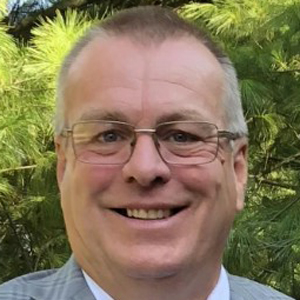
A Whitehall broadcaster known for his love of radio and sprots, Michael “Gilby” Gilbertson died Nov. 20. He was 66.
According to his obituary, Gilbertson started his radio career at WISM in Eau Claire doing play-by-play. His love for radio continued with on air positions with stations in Eau Claire, Oshkosh, and Whitehall. He also was part of a sports program with Hayes Callaghan for WQOW-TV in Eau Claire in the early ‘90’s.
Gilbertson was employed twice by WHTL radio. His most recent stint with WHTL lasted eight years as host of the Morning Ride. He also participated in sales, writing, and social media for the station.
With a love for baseball, Gilbertson was involved in setting up and playing for local teams, and coaching a variety of youth sports.
Memorial services will be held on Dec. 2 at 11 a.m. in Our Saviour’s Lutheran Church in Whitehall, with visitation on Dec. 1 from 4-7 p.m. and one hour prior to the service at the church on Tuesday.
-

 Rec Sports2 days ago
Rec Sports2 days agoFirst Tee Winter Registration is open
-
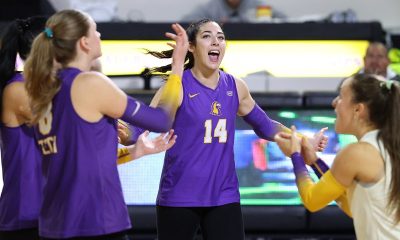
 Sports7 days ago
Sports7 days agoVolleyball Recaps – November 18
-

 Motorsports2 days ago
Motorsports2 days agoF1 Las Vegas: Verstappen win, Norris and Piastri DQ tighten 2025 title fight
-

 Rec Sports7 days ago
Rec Sports7 days agoTroy Football Need to Know; Gameday at The Vet — Georgia State Game
-

 Motorsports6 days ago
Motorsports6 days agoNiece Motorsports Signs Another New Driver for 2026
-

 Motorsports9 hours ago
Motorsports9 hours agoToni Breidinger Joins Forces With Uber in Game-Changing Partnership to Empower Women in Motorsports
-

 NIL5 days ago
NIL5 days agoRyen Russillo sends clear message to Big Ten on equity deal
-

 Motorsports14 hours ago
Motorsports14 hours agoCPG Brands Like Allegra Are Betting on F1 for the First Time
-

 Rec Sports6 days ago
Rec Sports6 days agoLong Beach Poly Girls’ Basketball Preview – The562.org
-

 NIL7 days ago
NIL7 days agoHow Every Contender Can Still Make (or Miss) the College Football Playoff




































